25 Important Introduction To Management Questions and Answers [With PDF]
The 1st chapter of our Management learning course is “Introduction to Management”. In this article, we’ll learn the 25 most important introduction to management questions and their answers.
It will help you understand the important introduction to management terms and their explanations quickly.
By reading this post, you may quickly prepare for Management courses and for any competitive tests such as school and college exams, vivas, job interviews, and so on.
So let get started…
Introduction to Management Questions and Answers
The 25 important introduction to management questions and answers are as follows:
Question 01: What is Management?
Answer: Management is a distinct social process consisting of planning, organizing, and controlling, designed to accomplish the objective by the use of people and resources.
Question 02: What are the Features of Management?
Answer: The followings are the important features of management:
- Process or group of activities
- Social processes or activities
- Means of achieving goals
- The technique of getting work
- A separate branch of knowledge
Question 03: What is the Importance of Management?
Answer: The importance of management is as follows:
- Increasing production
- Ensuring proper use of resources
- Increasing the skills of workers
- Establishing rules and discipline
- Creation of employment opportunities.
- Research and development
- Improving the environment
- Facilitating systematic control
- Providing systematic coordination
Question 04: What is the Function of Management?
Answer: The important function of management is as follows:
- Forecasting and Planning
- Organizing
- Staffing
- Directing and leading
- Co-coordinating
- Motivating
- Controlling
Question 05: What is Planning?
Answer: Planning is a pre-determined decision of where, when, how, by whom a task will be performed in the future.
Question 06: What is Organizing?
Answer: Organizing is the process of integrating the human and non-human elements of the organization and using them to achieve its objectives.
Question 07: What is Staffing?
Answer: Staffing is the process of recruiting, selecting, and developing suitable employees in order to build a competent and efficient workforce for the organization.
Question 08: What is Direction?
Answer: The organization has to give directions to the employees to perform the work as per the plan. Directions are generally given to the employees as to when and how they will do any work.
Question 09: What is Motivation?
Answer: Motivation is the process of creating interest in employees. The organization motivates the employees by taking various financial and welfare programs keeping in view the advantages-disadvantages, emotional feelings, happiness-sorrow, lack-complaint, etc. of the employees.
Question 10: What is Coordination?
Answer: Coordination is a process of connecting the work of people working in different departments of the organization.
Question 11: What is Control?
Answer: The last step in the management process is controlled. The control is to see if the activities are being carried out properly as per the plan or to see if the work is being carried out as per the instructions of the managers and to correct any deviations.
Question 12: What are Management Resources?
Answer: Management resources are the objects or materials required to carry out management tasks.
Question 13: What are the Six Resources of Management?
Answer: The six resources of management are as follows:
- Men
- Materials
- Machines
- Money
- Market
- Method
Question 14: What is Management Level?
Answer: Executives perform management tasks at various levels of the organization, from the top to the bottom. And the level format that is created as a result of this task is referred to as management level.
Question 15: What is Top Level Management?
Answer: The management formed by the top-level executives of the organization is called top-level management
Question 16: What is Mid-Level Management?
Answer: Mid-level management is the level of management that works to implement the higher-level goals, plans, and policies, as well as to employ lower-level managers.
Question 17: What is Lower level Management?
Answer: Lower-level management is the management responsible for implementing the plans and policies adopted by the mid-level management at the field level.
Question 18: Who is a Manger?
Answer: A manager is a person who is primarily responsible for performing managerial functions. Specifically, a manager plans an organization, makes the necessary decisions, organizes resources, executes tasks, provides leadership, and controls the organization as a whole.
Question 19: What is the Universality of Management?
Answer: The universality of management refers to the necessity of management in all cases or the applicability of management knowledge.
Question 20: What is a Profession?
Answer: A profession is the work of an individual with specialized knowledge and a degree who is a member of a state-recognized association and is engaged in a job that is governed by a set of rules and regulations.
Question 21: What is Management Cycle?
Answer: Management cycle refers to the cycle of actions under the management process
Question 22: Why Should Management Be Considered a Process?
Answer: The process is a collection of interconnected, continuous tasks used to achieve a goal.
Management is the sum of all work done to achieve organizational goals through planning, organization, staffing, leadership, and control.
Every management task is completed consistently, and one task influences another. The achievement of its objectives is dependent on the accuracy of all work.
As a result, management is considered a process.
Question 23: How is Management a Social Process?
Answer: The term “social process” refers to the process or actions that are carried out with the participation of various parties involved in society.
Management is referred to as a social process because the functions of the management process are carried out through the participation and cooperation of various parties both inside and outside the organization.
Question 24: How does Management Take Role in the Development of Manpower?
Answer: Management is always striving to develop its resources and make the best use of them. Man is the most important of all these resources.
As a result, good management takes the best measures for human resource development, such as proper staff recruitment, training, incentives, and so on, all of which contribute to human resource development.
Question 25: Why are Planning and Controlling regarded as the Two Sides of a Coin in Management Cycle?
Answer: The management process begins with the formulation of the plan and ends with the control.
Once the plan is the basis of control, on the other hand, control is also considered as the basis of the plan.
That is to say, in the management cycle, planning and control are the opposite of money.
I hope that by the end of this post, you have a good understanding of the “Introduction to management” chapter.
You will gain a better understanding of the “Introduction to Management” chapter if you read these 25 important “introduction to management” questions and answers on a regular basis.
If you have any doubts or questions, don’t hesitate to contact us or leave a comment so that we can respond soon.
You can also read:
- 25 Important Management Principles Questions and Answers [With PDF]
- 25 Important Planning and Decision-Making Questions and Answers [With PDF]
- 30 Important Organizing Questions and Answers [With PDF]
- 25 Important Staffing questions and Answers [With PDF]
- 20 Important Leadership Questions and Answers [With PDF]

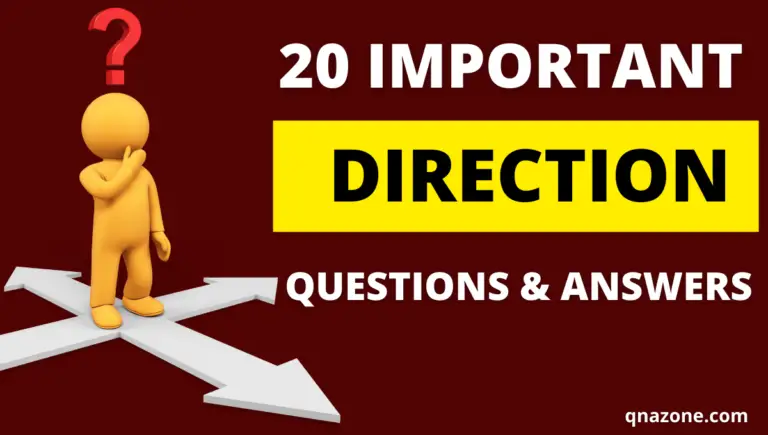
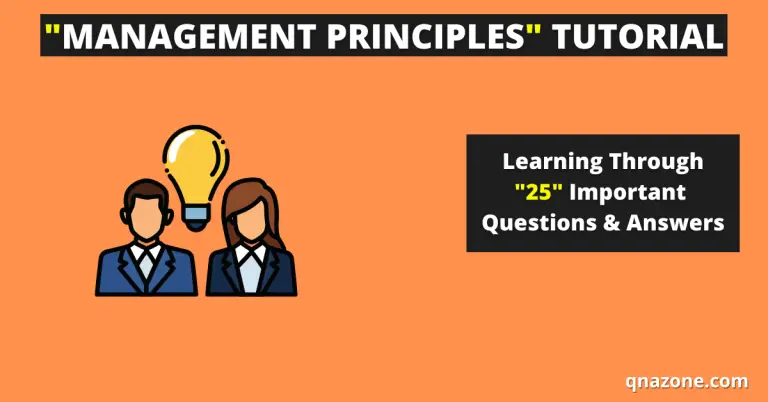
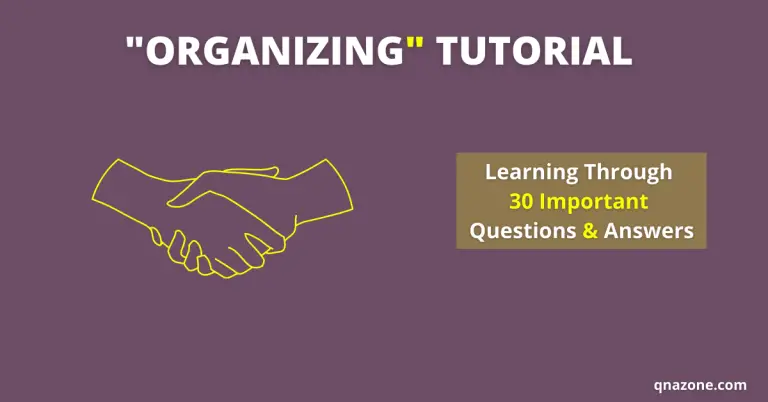
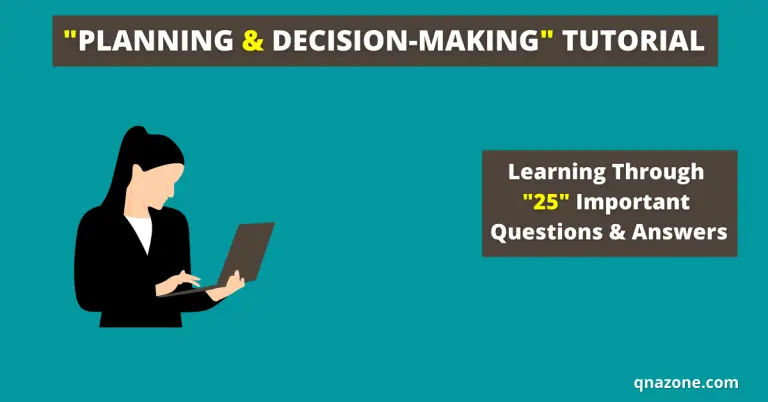

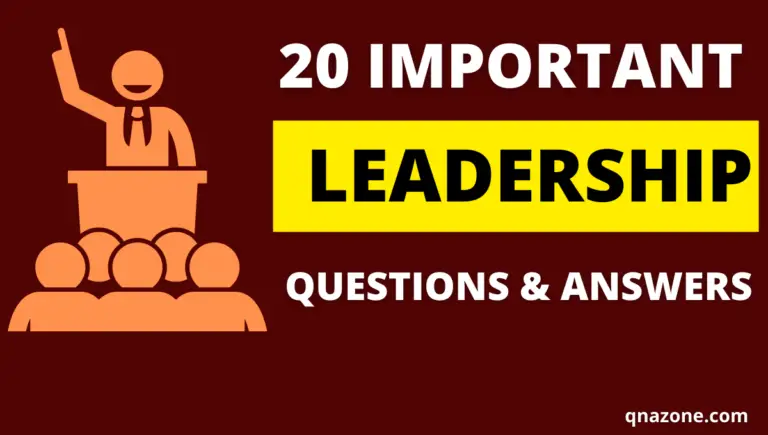
Great